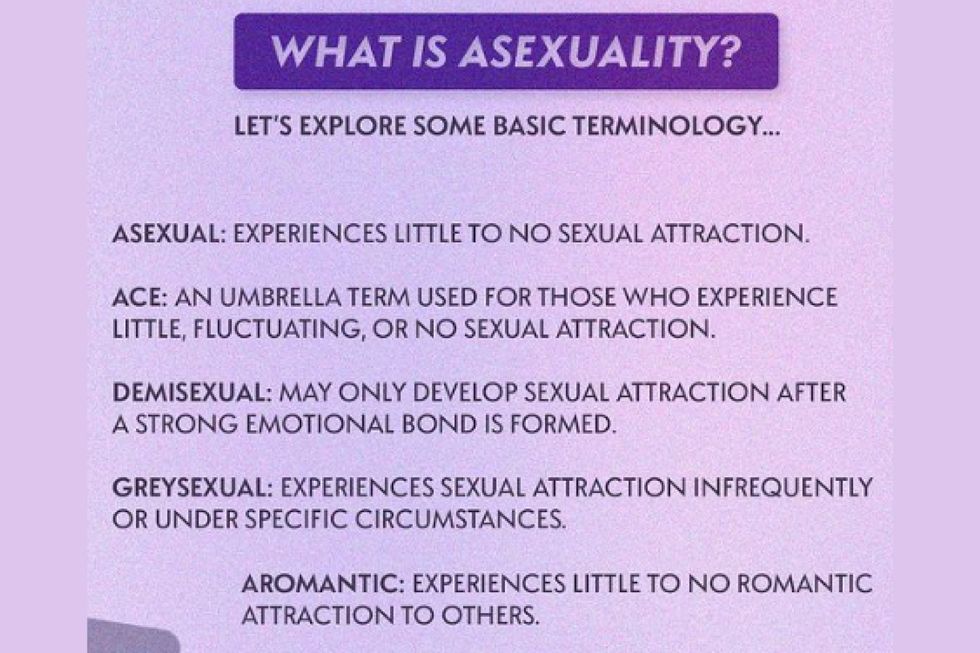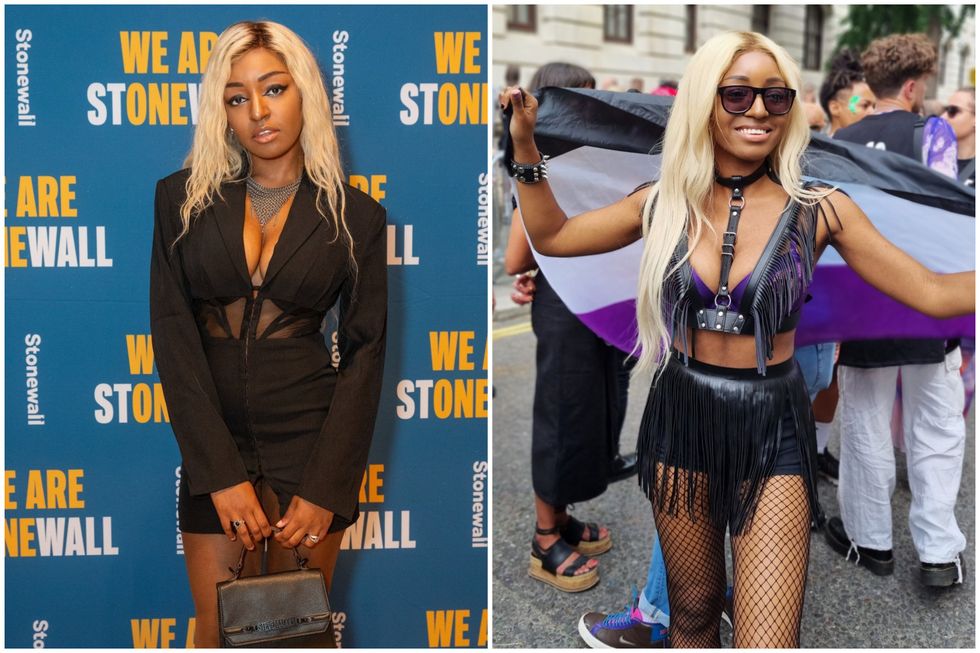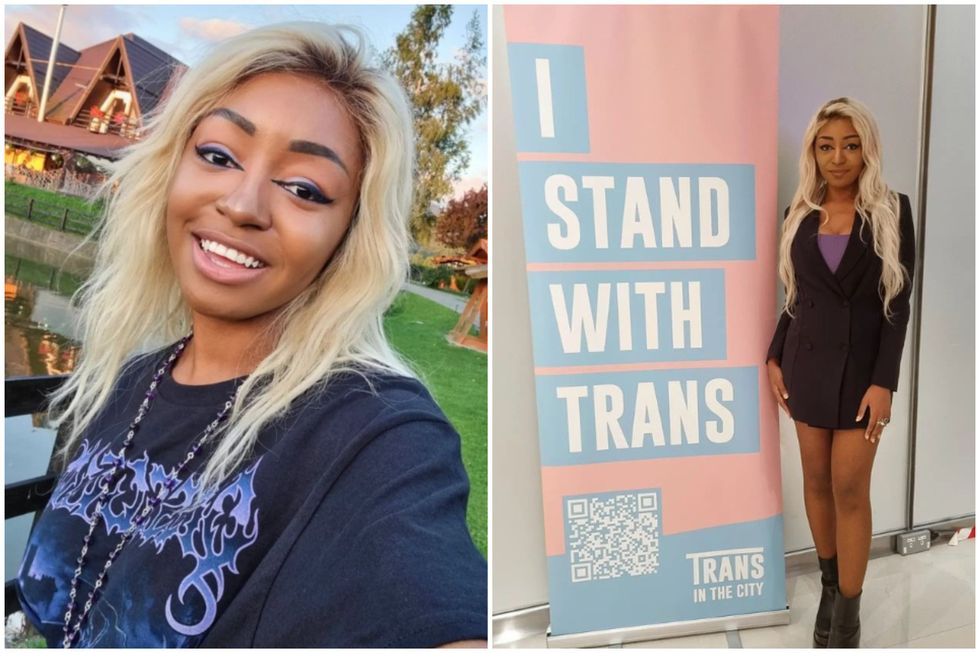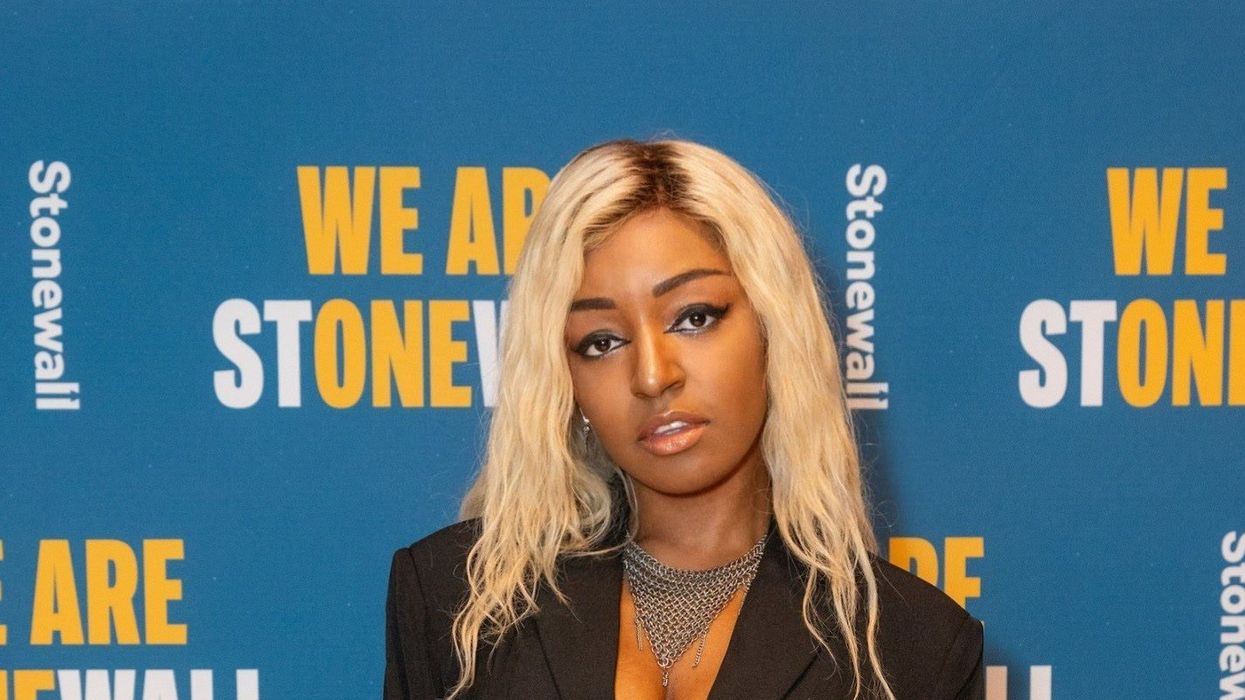Harriet Brewis
Nov 22, 2023
Asexual people say 'No thanks' to sex
DW - Politics & Society / VideoElephant
Countless self-styled “free speech” crusaders think it is their inherent right, nay duty, to ignorantly tear into marginalised groups.
And now they’ve set their sights on a new target: asexual people.
Asexuality is broadly misunderstood, with many people viewing it as a mental health condition rather than a legitimate sexual orientation.
And nowhere has this ignorance been more painfully evident than in the right-wing media’s coverage of a recently released report.
Campaigner Yasmin Benoit, 27, teamed up with the LGBTQ+ charity Stonewall to investigate the discrimination faced by ace people in the UK, releasing their findings at the end of last month.
(In the interests of clarity, this glossary published by Rainbow Media Co. should help readers who may not be familiar with relevant terms, including “ace”:)

And yet rather than discuss the report’s conclusions in a measured and respectful way, pundits have gleefully mocked its subject matter, with some going so far as to suggest that ace people are miserable because they don't have sex.
In a comment piece for Spiked, journalist Jo Bartosch accused Yasmin and her fellow ace representatives of “vying for a spot at the top of the victimhood pile”.
She dismissed the Stonewall report as a mix of “whinging” and “self-indulgence,” and accused its authors of attempting to “capitalise on the historical suffering of lesbians and gay men”.
“The report also explains ‘ace respondents had the lowest levels of life satisfaction of all sexual-orientation groups’,” Bartosch wrote.
“It’s tempting to wonder whether a quickie might improve their mood.”

Speaking to indy100, Yasmin pointed out that this assessment sounded “a little rapey”.
“Imagine if someone said to a lesbian, ‘Maybe you would have higher mental health rates and higher life satisfaction scores if you just took some more d**k,’” she said.
“You wouldn't say that – it would be horrendously inappropriate and homophobic – but people don’t seem to understand why it's weird to tell an asexual person that they might be ‘cured’ if they do something they have no desire to do.”
And yet, as Yasmin discovered during the two years she spent working on the Stonewall report, and from her own personal experiences, healthcare providers regularly treat asexuality as “something that’s physically or mentally wrong with you”.
She noted that asexuality is classified as a mental health condition by the World Health Organisation (WHO), and that ace people are 10 per cent more likely to undergo or be offered conversion therapy than other orientations.
“This means that health practitioners attempt to treat you for your asexuality, which essentially means changing your asexuality – using medication and/or psychotherapy – ideally to make you straight,” Yasmin explained.
She even found that some of the people she spoke to for the report were left with “long-term issues mentally and physically” because they “weren't able to get the help they actually needed because the practitioners were more concerned about fixing their asexuality”.
Despite all of this, the likes of Bartosch deride ace conversion therapy as a “fictional complaint about a fictional oppression on the basis of a fictional sexual orientation.”
Still, in Bartosch’s defence, she at least seems to have read the report relatively thoroughly, which Yasmin suggests is more than can be said for Spiked deputy editor Fraser Myers – who gave his take on it during a segment for GB News.
Myers began by defining asexuality as “feeling no romantic attachment” or desire to have sex with other people.
However, as Yasmin was quick to point out, being asexual, in fact, means experiencing little-to-no sexual attraction – it isn’t about romantic attraction, or not being able to experience any kind of attraction towards anyone.
“Getting the definition wrong is a great way of showing that you’re knowledgeable about the subject you’re talking about,” she noted in a breakdown of his points.
Myers then went on to describe the Stonewall report as “quite eyebrow-raising”, adding: “There are claims that 10 per cent of asexual people have undergone conversion therapy – I think what they mean is that maybe their parents have said, ‘Are you going to find a nice girlfriend?’”
He then suggested that ace people are probably “less happy than heterosexual people” because “they’re not getting any,” which was met with peals of laughter from his GB News hosts.
“Making fun of conversion therapy is fine if it concerns asexual people apparently,” Yasmin wrote in her critique of Myers’s appraisal.
She also explained that most LGBTQIA+ people suffer from worse mental health than straight people, describing it as “a pretty well-known consequence of stigma, queerphobia and heteronormativity”.
Sadly, Yasmin is used to the mockery and abuse from all corners of the internet, and admits that even members of the LGBTQ+ community have struggled to accept her work with Stonewall.
“I've noticed when it comes to members of the LGBTQ+ community that have trouble accepting asexuality, they tend to also be the people that don't accept trans identities,” she explained.
“They tend to be just exclusionary in general. And I think that that just comes from this strange idea that there's already too much – humans cannot vary this much.
“It has to be some kind of work of fiction for there to be this much diversity in the way people experience sexuality; it must be something that's been made up with an ulterior motive, because their brains can't extend that far.”

However, the harassment and discrimination faced by ace people have compelled Yasmin, Stonewall and fellow campaigners to set out a number of recommendations, including an end to the WHO’s classification of asexuality as a mental health condition, and protections under the Equality Act and hate crime laws.
“You should be able to say you're asexual in front of your healthcare provider and not have them try and put you in conversion therapy,” she stressed.
“You should be able to say you're asexual at work and if someone was to bully you or say something inappropriate or treat you differently, you should be able to complain and it should matter. But it’s not recognised as a sexual orientation, so you have no protection as somebody with a minority sexual orientation.
“You could even go on to Citizen's Advice and it explicitly says if you're asexual, you are not protected as a sexual orientation under the Equality Act.
She added: “You can take one look at my Twitter comments and see that there is aggression towards asexual people and there's vitriol and there's abuse and there is harassment, and technically there's nothing I can do about that.”
Asked why she thinks ace people face such animosity, Yasmin sighed that people are “trying to shut [asexuality down].”
“They're like, OK, here's a new thing. I don't understand it, I'd rather it didn't exist, so I'm going to try and make it not exist by trying to stamp out people so that they don't talk about it anymore.”
But people are talking, and hopefully will continue to talk.
After all, that’s the only way asexuality will finally get the recognition, and legitimacy, it deserves.
Sign up for our free Indy100 weekly newsletter
Have your say in our news democracy. Click the upvote icon at the top of the page to help raise this article through the indy100 rankings
Top 100
The Conversation (0)














